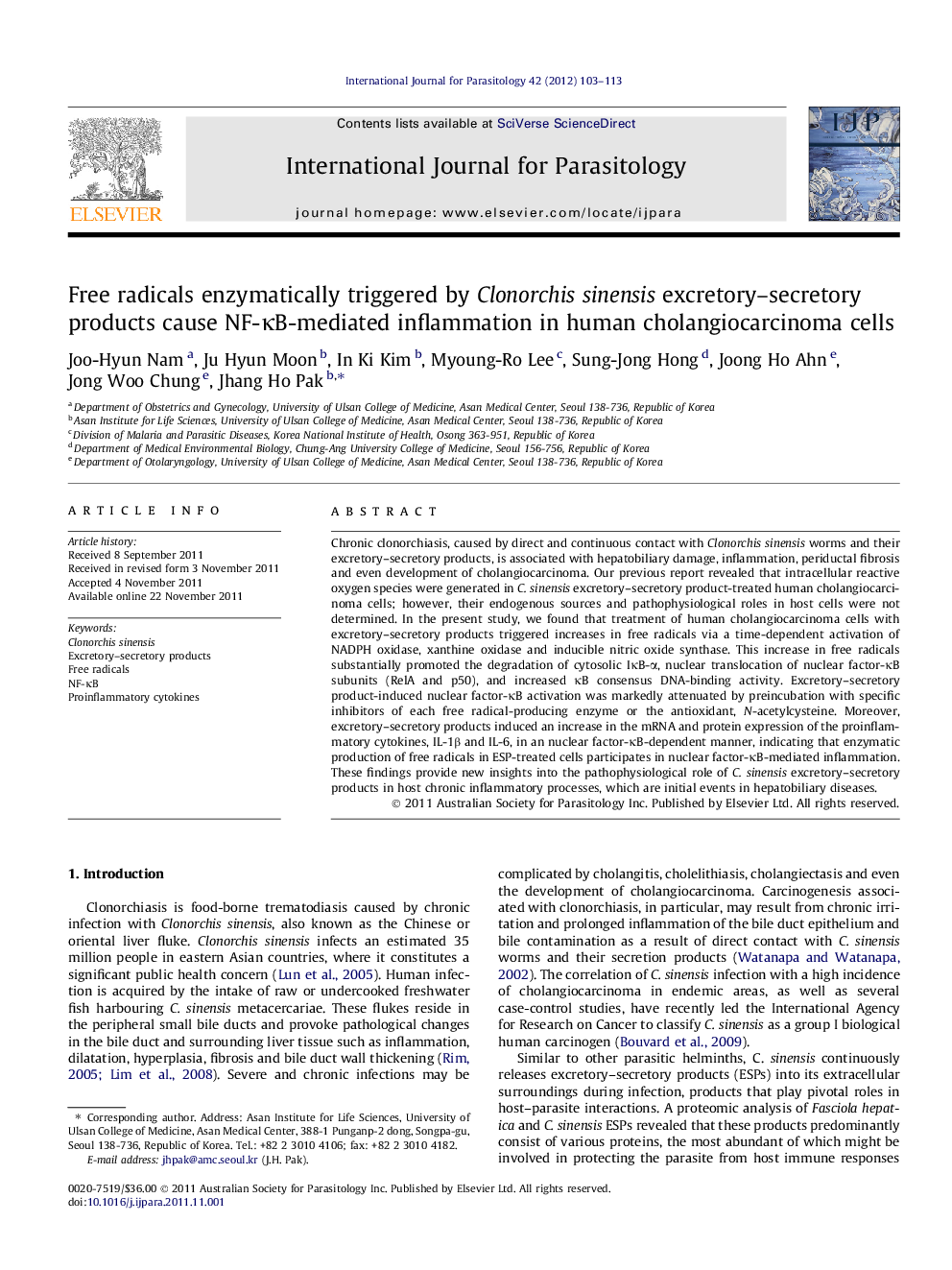| کد مقاله | کد نشریه | سال انتشار | مقاله انگلیسی | نسخه تمام متن |
|---|---|---|---|---|
| 2436135 | 1107277 | 2012 | 11 صفحه PDF | دانلود رایگان |

Chronic clonorchiasis, caused by direct and continuous contact with Clonorchis sinensis worms and their excretory–secretory products, is associated with hepatobiliary damage, inflammation, periductal fibrosis and even development of cholangiocarcinoma. Our previous report revealed that intracellular reactive oxygen species were generated in C. sinensis excretory–secretory product-treated human cholangiocarcinoma cells; however, their endogenous sources and pathophysiological roles in host cells were not determined. In the present study, we found that treatment of human cholangiocarcinoma cells with excretory–secretory products triggered increases in free radicals via a time-dependent activation of NADPH oxidase, xanthine oxidase and inducible nitric oxide synthase. This increase in free radicals substantially promoted the degradation of cytosolic IκB-α, nuclear translocation of nuclear factor-κB subunits (RelA and p50), and increased κB consensus DNA-binding activity. Excretory–secretory product-induced nuclear factor-κB activation was markedly attenuated by preincubation with specific inhibitors of each free radical-producing enzyme or the antioxidant, N-acetylcysteine. Moreover, excretory–secretory products induced an increase in the mRNA and protein expression of the proinflammatory cytokines, IL-1β and IL-6, in an nuclear factor-κB-dependent manner, indicating that enzymatic production of free radicals in ESP-treated cells participates in nuclear factor-κB-mediated inflammation. These findings provide new insights into the pathophysiological role of C. sinensis excretory–secretory products in host chronic inflammatory processes, which are initial events in hepatobiliary diseases.
Figure optionsDownload high-quality image (97 K)Download as PowerPoint slideHighlights
► Clonorchis sinensis ESP-mediated free radical generation in HuCCT1 cells was examined.
► Free radicals were generated by the activation of NOX, XO and NOS.
► Enzymatic production of free radicals resulted in the activation of NF-κB.
► NF-κB activation led to an increase in the mRNA and protein of IL-1β and IL-6.
Journal: International Journal for Parasitology - Volume 42, Issue 1, January 2012, Pages 103–113